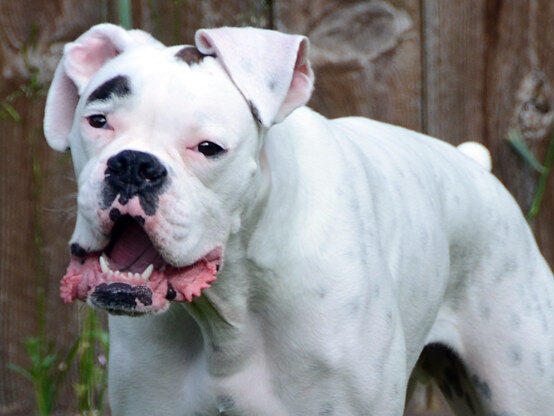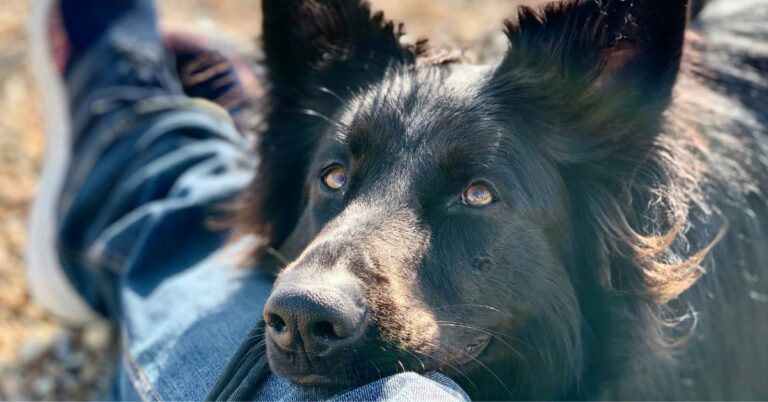30 Signs Your Puppy Is Depressed
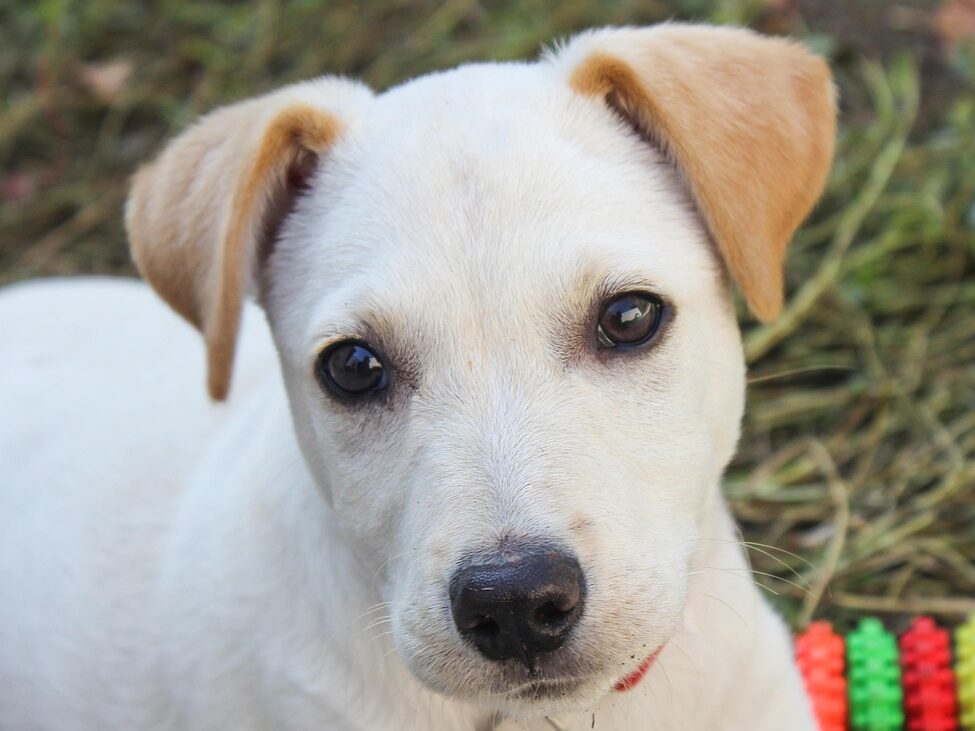
Puppies are typically bundles of energy, curiosity, and joy. But just like people, they can experience emotional lows too. Whether it’s due to a change in environment, lack of stimulation, or loss of a companion, puppy depression is real and shouldn’t be ignored. Here are 30 signs your puppy might be feeling down, and why they matter.
Loss of Appetite

A sudden lack of interest in food is one of the most obvious and alarming signs something’s wrong with your puppy. While puppies can occasionally skip a meal due to stress, teething, or a minor upset, prolonged refusal to eat, especially when paired with other changes, may indicate emotional distress. Puppies associate food with comfort, safety, and routine. So, if yours begins turning down even their favorite treats, it could mean they’re feeling emotionally disconnected.
Low Energy Levels

Puppies are typically known for their endless energy. If your normally bouncy pup suddenly becomes lethargic, it might not just be tiredness. Emotional distress can sap motivation, making even basic activities feel like too much effort. A depressed puppy might sleep more, move less, and show little interest in exploring.
Hiding or Avoiding Contact

If your puppy suddenly starts hiding behind furniture, crawling under beds, or retreating when approached, it may be feeling emotionally overwhelmed or deeply insecure. Avoidance behaviors are common in both anxious and depressed dogs. Puppies usually seek social contact and affection, especially from their trusted people. When that need vanishes, it’s often because they’re emotionally struggling.
Whining Without Reason
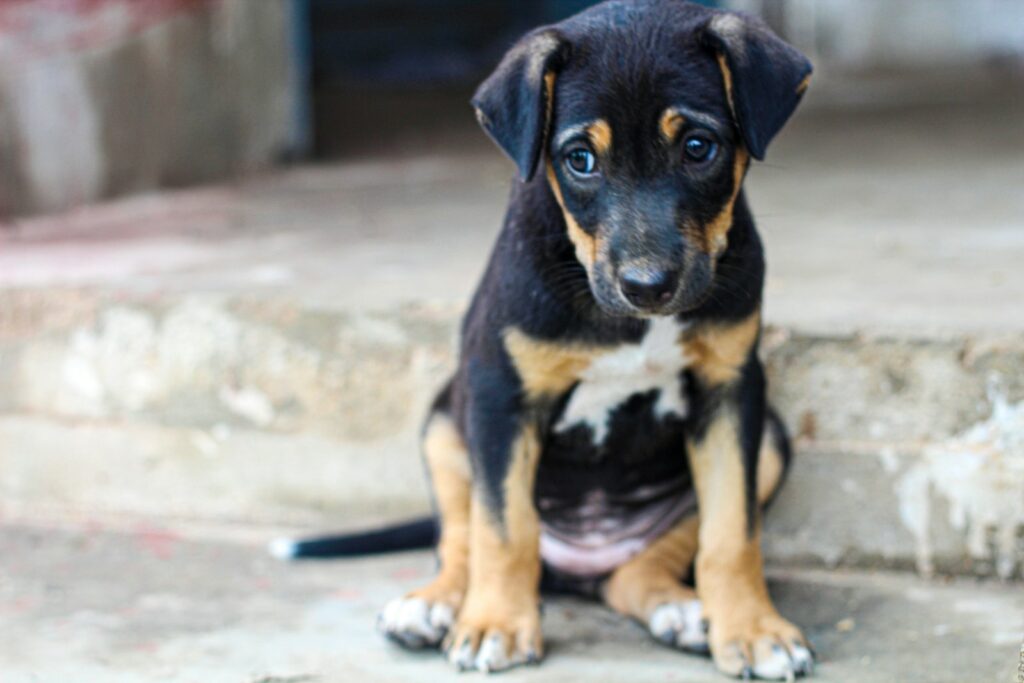
Puppies vocalize for all sorts of reasons, but ongoing, low-level whining that doesn’t seem linked to hunger, bathroom needs, or pain can be a form of emotional expression. It’s often a sound of discomfort, confusion, or longing. Your puppy might be trying to get your attention, not because they want a treat or a toy, but because they’re struggling internally and don’t know how else to cope.
Sleeping More Than Usual

Puppies do sleep a lot, sometimes up to 18 hours a day, but depression-related sleep is different. Instead of restful naps punctuated by bursts of play, a depressed puppy may sleep longer and seem drowsy or disconnected when awake. They might nap in odd places, resist waking up for meals, or show no enthusiasm even after long rest. In this context, sleep becomes more like escape. It’s a way to shut down from a world that no longer feels engaging or safe.
Loss of Interest in Toys or Play

When a puppy suddenly stops playing or walks away from toys they once loved, it’s a significant sign of emotional change. Depression often dulls enthusiasm and curiosity. You might notice your pup lying near their toys but not engaging with them, or ignoring invitations to play altogether. This withdrawal can signal that they’re mentally or emotionally checked out.
Ignoring You

When a once-affectionate and responsive puppy begins to ignore your voice, presence, or physical affection, it can feel confusing and even hurtful. But emotional withdrawal is a common symptom of depression in dogs. Your puppy might stop responding to their name, avoid eye contact, or walk away when you enter the room.
Accidents in the House

A puppy that was previously doing well with potty training may suddenly start having accidents again if they’re depressed. Emotional distress can disrupt learned routines, especially when it affects concentration and motivation. Depression may also suppress your puppy’s desire to please you or follow training rules. Alternatively, emotional imbalance can lead to anxiety-induced urination, particularly if your pup feels insecure or abandoned.
Excessive Licking or Chewing

When puppies are feeling anxious or depressed, they may try to comfort themselves through repetitive behaviors like licking or chewing. This can include licking their paws excessively, chewing their own tail, or mouthing blankets and furniture. In some cases, they may even create raw spots or cause minor injuries. This behavior is often a coping mechanism, similar to how some people fidget when stressed. It’s a physical outlet for emotional discomfort.
Changes in Vocalization

A depressed puppy may become more vocal, or much quieter, than usual. Sudden changes in barking, whining, or howling habits often reflect inner distress. A normally quiet pup might begin whining persistently, while a chatty one might go oddly silent. These changes often coincide with shifts in energy, appetite, or social engagement. It’s your puppy’s way of saying, “Something doesn’t feel right,” but without words. So, take note of when the vocal changes happen.
Refusal to Go for Walks

Most puppies go wild at the mention of a walk. If yours suddenly refuses to leave the house, stops halfway, or seems disinterested in their usual route, it’s a red flag. Avoiding walks might signal fear, sadness, or a lack of motivation, all of which point toward emotional distress. In some cases, it may also stem from overstimulation or past trauma, especially in rescue puppies. Whatever the cause, a dramatic drop in enthusiasm for walks deserves attention.
Shaking or Trembling

While trembling can sometimes be due to cold or fear, ongoing shaking in a puppy that’s otherwise safe and warm often reflects inner anxiety or emotional overload. Depressed puppies may tremble when approached, during loud noises, or even when lying alone. This is their nervous system’s way of expressing discomfort or overwhelm. It can also be a sign of fear-based depression, particularly if a puppy has experienced loss, mistreatment, or sudden changes in their environment.
Reacting Poorly to Affection
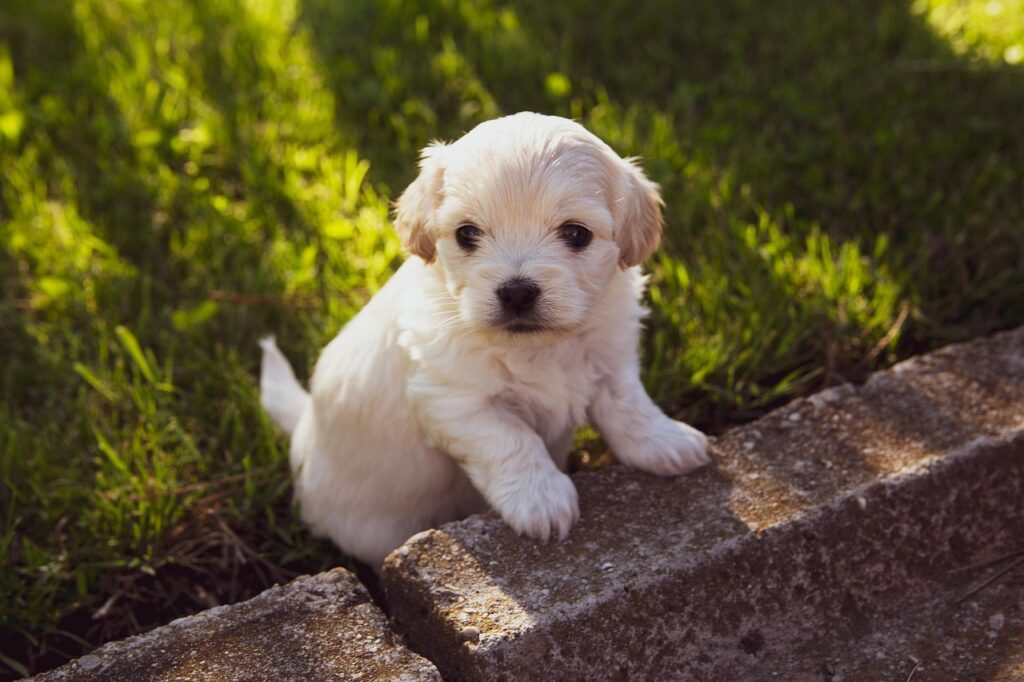
If your puppy stiffens, flinches, or pulls away when you pet them, something’s not right. Puppies typically crave affection and human contact. But when they start to view even gentle touch as something unpleasant or overstimulating, it may be a sign of emotional withdrawal. Depression can make them hypersensitive, easily startled, or simply uninterested in physical closeness.
Staring Blankly
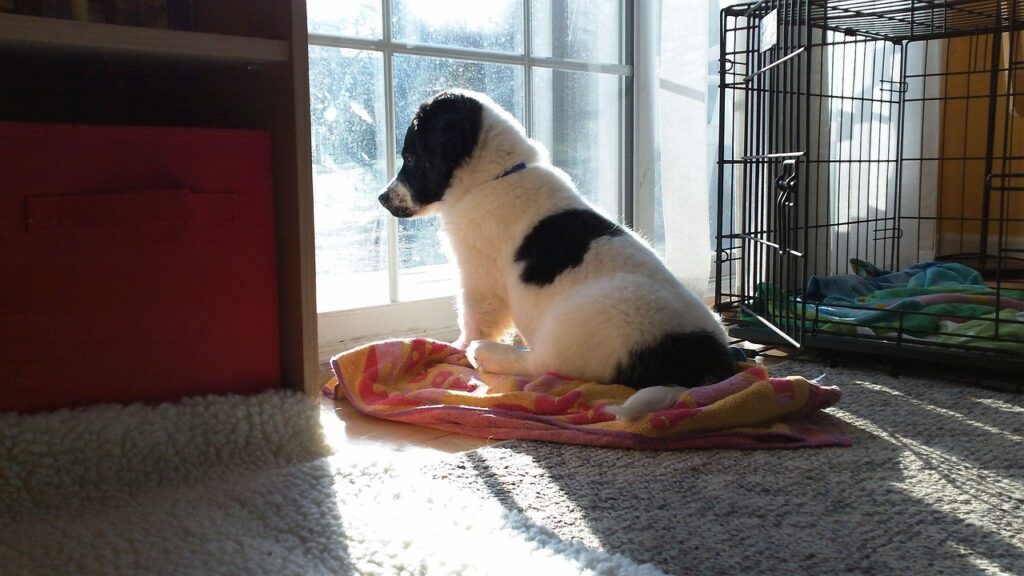
Puppies are curious by nature, so a blank, empty gaze that lingers for minutes on end isn’t normal. If your puppy seems to be staring into space or zoning out, it could indicate they’re mentally overwhelmed, emotionally checked out, or depressed. This “nothingness” look may happen when they’re alone or even during times they should be engaged, like playtime or meals. Blank stares are sometimes mistaken for calmness, but they may actually reflect a complete disengagement from their environment.
Loss of Routine Behavior

If your puppy no longer gets excited when you grab the leash, rustle a treat bag, or say their name, that’s a major change in emotional baseline. Puppies love routine because it gives them security and predictability. When they no longer react to regular cues or behaviors that used to excite them, it suggests they may be too emotionally numb to care. You might also notice them missing scheduled potty breaks or not responding to familiar commands.
Clinginess or Over-Attachment

Not all signs of puppy depression involve withdrawal. Some puppies respond by becoming excessively clingy, following you everywhere, whining when you leave the room, or even panicking when left alone. While attachment is normal, sudden or intense dependency may reflect emotional instability. This over-attachment can make it hard for your puppy to self-soothe, which leads to further emotional distress when you’re not around.
Destructive Behavior

Chewing furniture, tearing up bedding, or shredding things they normally ignore could be your puppy’s way of dealing with inner turmoil. While puppies are naturally curious and prone to mischief, true destructive behavior that feels frantic or repetitive often signals emotional distress. It’s especially telling if this behavior begins suddenly or escalates quickly. Depression and anxiety can create pent-up energy and confusion that a puppy doesn’t know how to express constructively.
Refusing Treats or Rewards

If your puppy turns down treats they used to love, that’s a red flag. Refusing rewards, even when they’re hungry, suggests a major shift in emotional state. Puppies with depression may feel so disengaged that even food loses its appeal. This can also interrupt training progress and damage their confidence. So, pay attention if this behavior continues for more than a day or two.
Low Tail Position or No Wagging

A puppy’s tail is one of their most expressive features. A tail that stays tucked, limp, or still, especially during times of excitement or interaction, can indicate sadness or submission. If your puppy used to wag like crazy when you came home and now barely reacts, it’s time to check in on their emotional well-being.
Trouble Settling Down
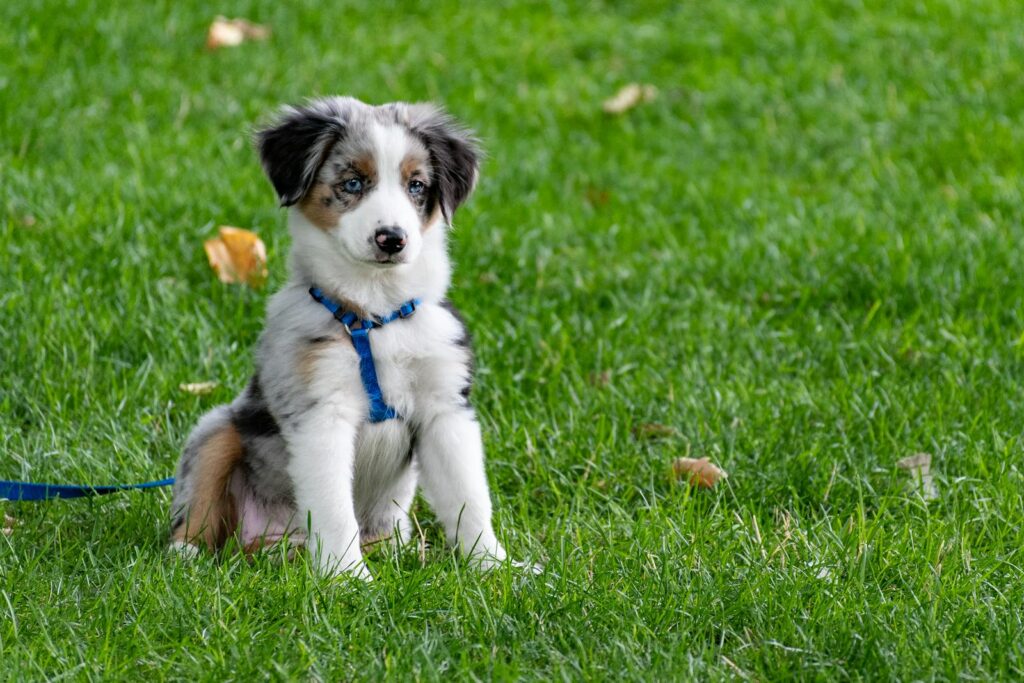
Puppies with depression may seem restless even though they aren’t playful. They pace around the room, shift constantly while lying down, or appear agitated without cause. This inability to get comfortable or fully relax often signals internal stress. They may not know what to do with themselves, and that confusion shows in their body language.
Withdrawal from Other Pets
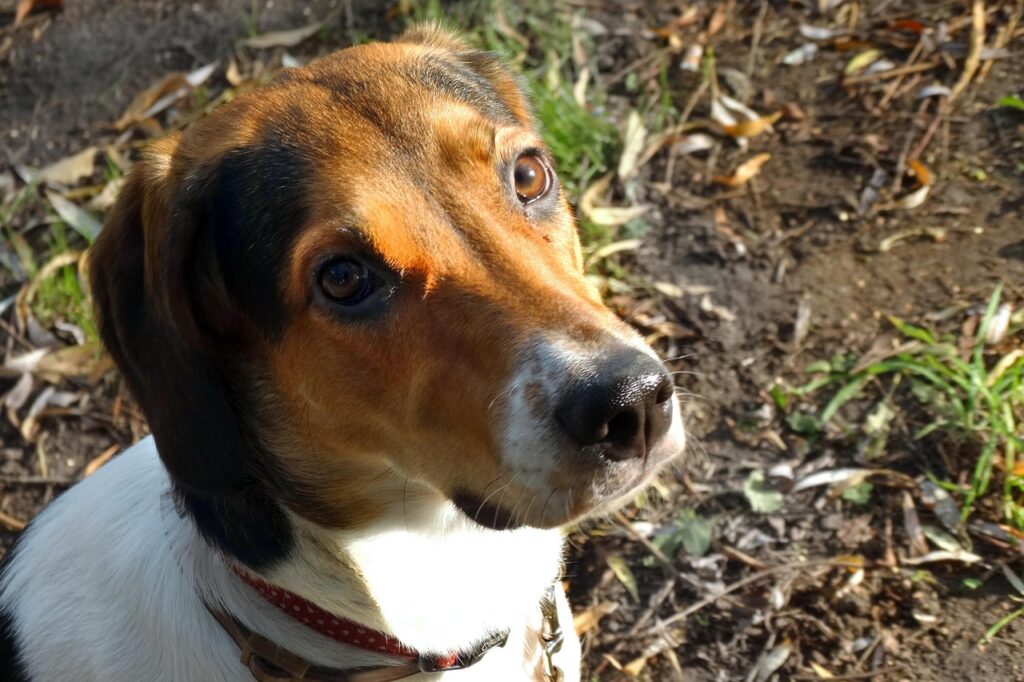
A depressed puppy may suddenly avoid play or cuddle time with other household pets, even ones they were previously close to. This kind of social withdrawal can be subtle, such as sitting apart from the group, not responding to play invitations, or leaving the room when another animal enters. It may stem from low energy, fear, or simply a loss of interest in social bonding. If your puppy seems disconnected from furry companions, it’s worth considering how they’re feeling emotionally.
Ignoring Commands They Know

A puppy who suddenly stops responding to basic commands, like sit, come, or stay, may not be defiant. They could be emotionally overwhelmed. Depression can reduce focus, motivation, and interest in reward-based training. If your pup looks away, acts confused, or simply doesn’t seem to care, it’s not about stubbornness. It’s about mental fatigue or emotional disinterest. This type of behavior, especially when paired with other signs, signals that your puppy may be silently struggling.
Sudden Aggression or Irritability

Though less common, some puppies react to depression with mood changes. If your normally gentle pup starts snapping, growling, or becoming easily irritated, especially during handling or feeding, it may be a sign of emotional discomfort. Depression can lower tolerance, increase sensitivity, and even create feelings of confusion or helplessness that show up as aggression. It’s important not to punish this behavior without understanding its root.
Following You A Lot
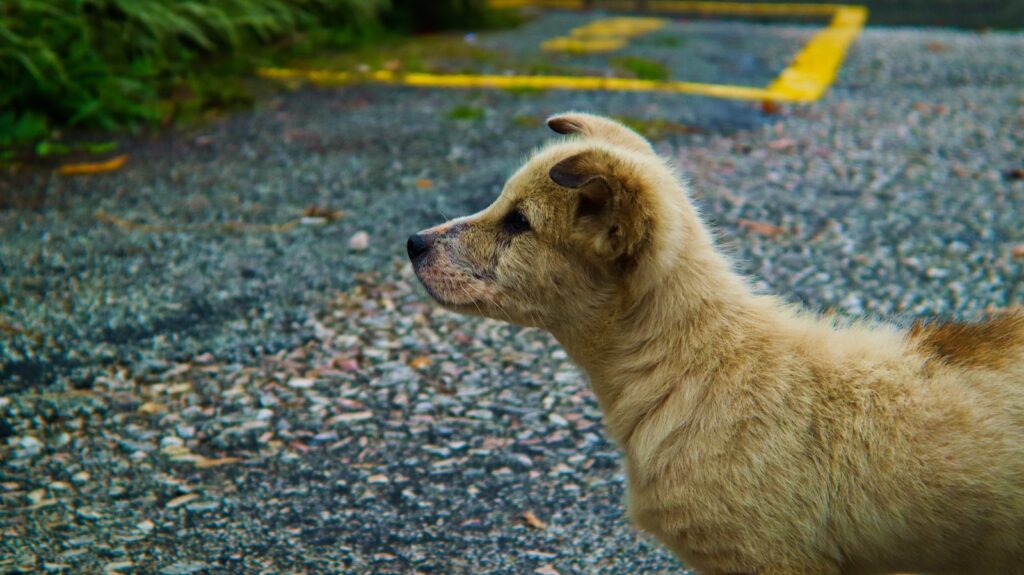
While it’s cute when your puppy tags along at your heels, doing so obsessively can indicate anxiety and emotional imbalance. If your pup follows you from room to room and becomes visibly upset when separated, they might be using your presence as a crutch for emotional regulation. This need for constant reassurance may originate from loneliness, insecurity, or early trauma.
Change in Facial Expression
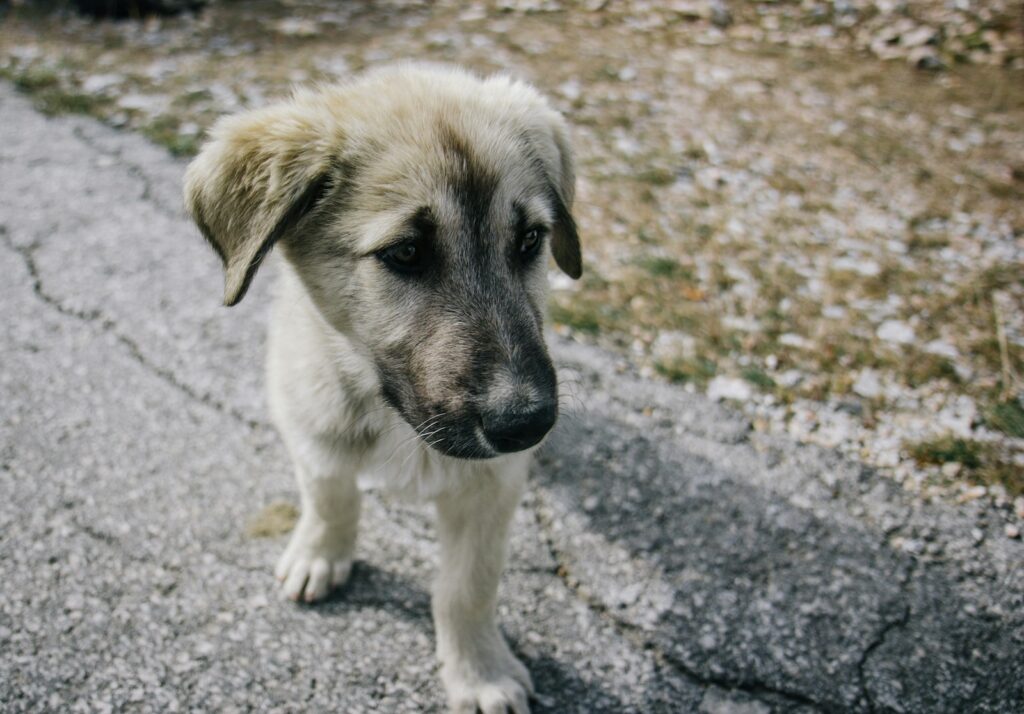
Dogs have expressive faces, and subtle changes can reveal a lot. If your puppy’s eyes seem dull, their brow stays furrowed, or they constantly look “sad,” it may reflect how they’re truly feeling inside. These expressions often accompany other signs like withdrawal or lack of interest. Some puppies even look like they’re frowning or worried, with droopy ears and tight muscles around the mouth.
Avoiding Eye Contact

Healthy puppies love to look at their humans. It’s part of bonding, communication, and trust-building. If your puppy starts avoiding your gaze, it may be feeling insecure or emotionally withdrawn. Eye contact requires vulnerability, and avoiding it is a sign that your puppy may be shutting down emotionally. It’s especially concerning if this shift is sudden or accompanied by other signs of sadness.
Freezing Up in Social Settings

Whether it’s puppy class, the dog park, or a visit to a friend’s house, your puppy should show at least some interest in the world around them. If they suddenly freeze, sit in a corner, or refuse to engage, it could be emotional overload. Depressed puppies sometimes withdraw in group settings because they feel insecure or overstimulated. What looks like shyness might be fear, sadness, or mental exhaustion.
Overreacting to Minor Stressors
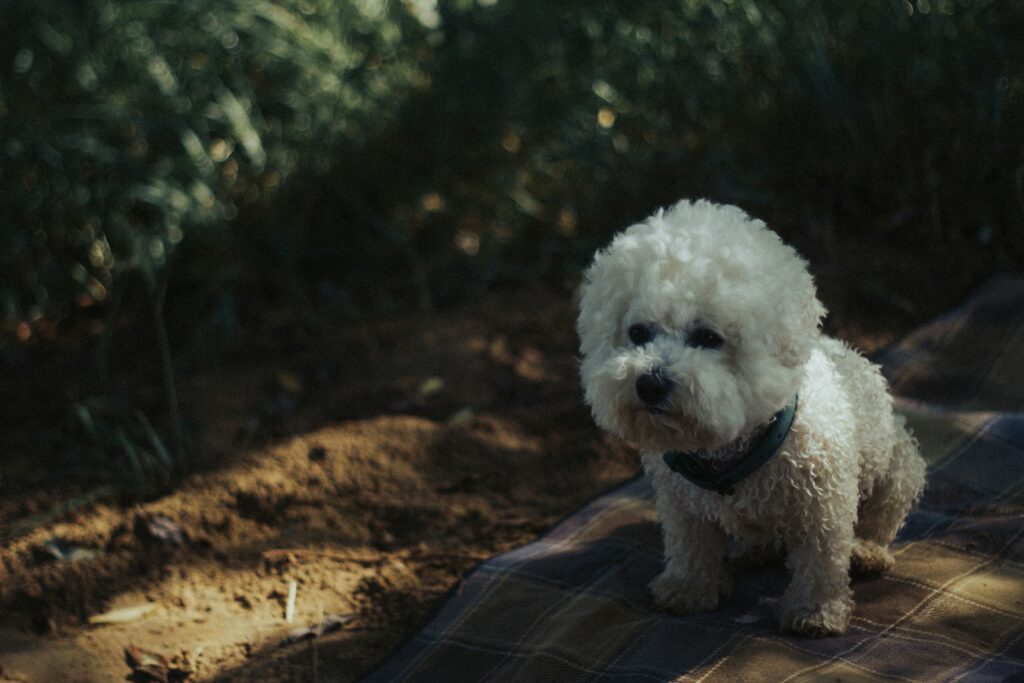
If your puppy suddenly becomes jumpy around harmless noises, strangers, or even familiar routines, it may be emotionally fragile. Depression and anxiety can amplify a dog’s reactions to the world, making them feel unsafe even when there’s no real danger. Small things, like a knock at the door or a dropped spoon, may cause trembling, barking, or hiding. This hypersensitivity is a sign that your puppy’s nervous system is on edge and needs time, patience, and possibly professional guidance to heal.
Going Limp When Picked Up

Puppies are usually squirmy when picked up, but if yours goes completely limp, it can indicate emotional shutdown. This physical collapse often comes from feeling overwhelmed or sad. It may be mistaken for calmness, but the absence of movement, eye contact, or reaction suggests your puppy has emotionally disengaged. This can be particularly alarming and should be addressed with gentle reassurance and observation.
You Just Sense Something’s Off

Sometimes, it’s not about checking boxes. You just know your puppy isn’t quite themselves. Maybe they’re quieter. Maybe they’re just a little “off” — less responsive, less curious, less joyful. Trust that instinct. You’re likely noticing subtle signs before they become bigger problems. Depression in puppies doesn’t always scream. Sometimes it whispers. And when you catch those whispers early, you have the best chance of helping your puppy recover, reconnect, and feel like themselves again.
